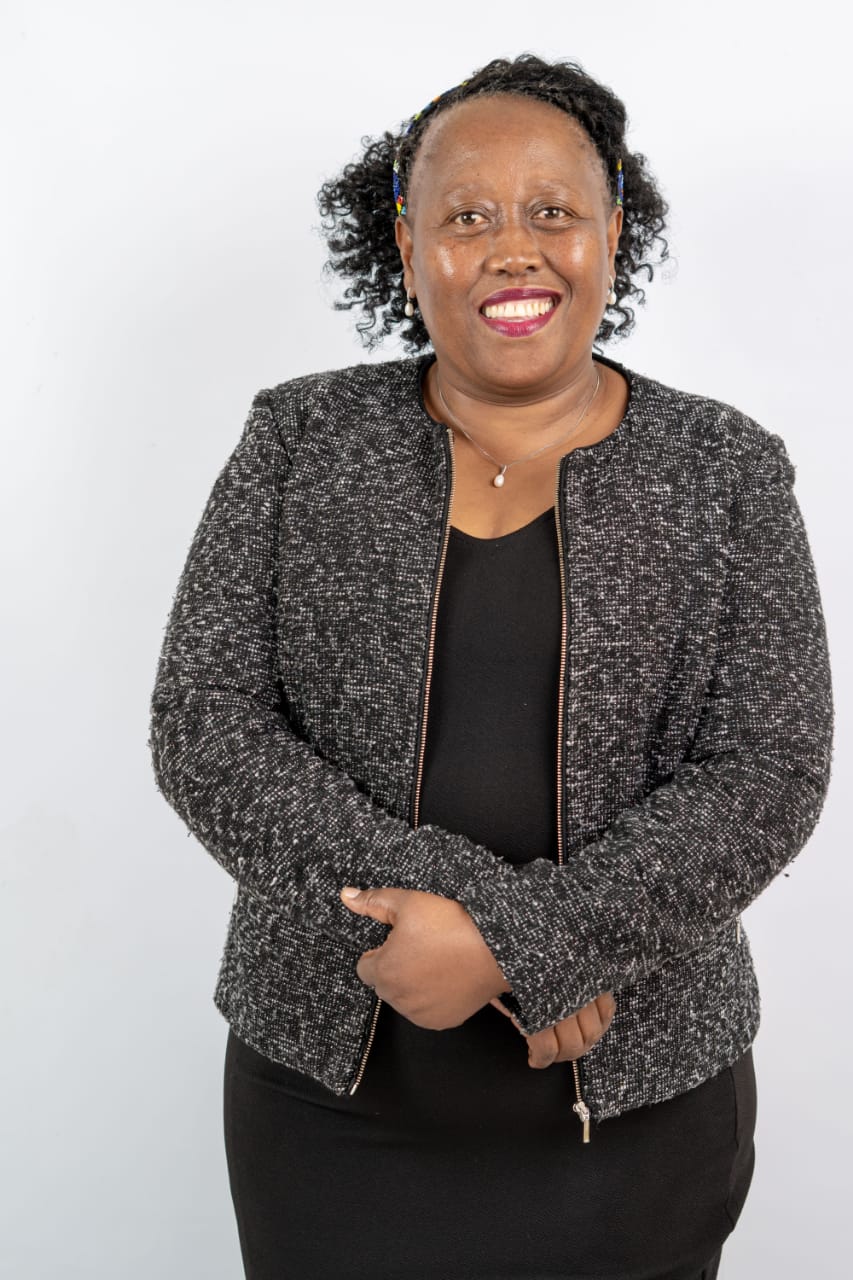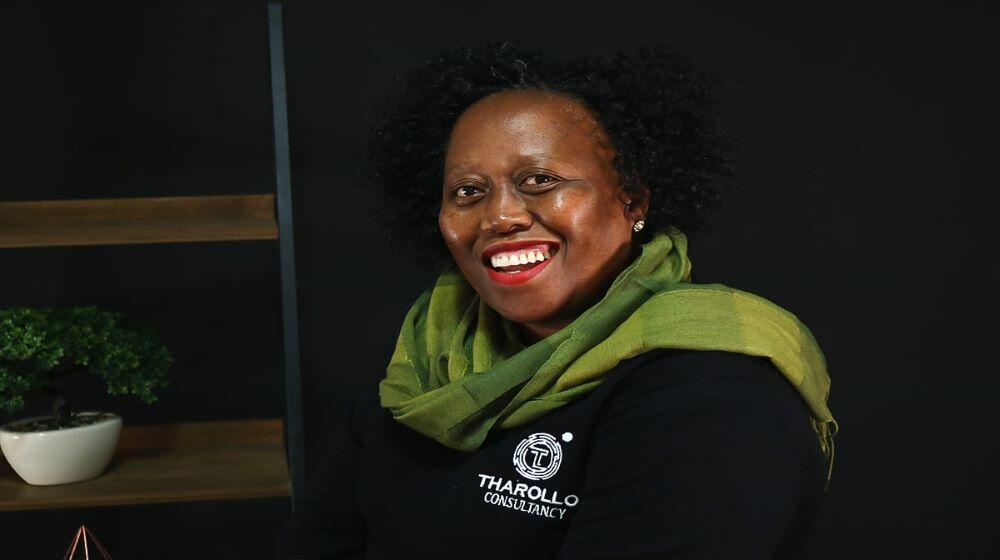For Rethabile “Sebaibai” Sakoane, Gender Based Violence is a cancer that should be treated with severe force because if people keep on tip-toeing around the issue and giving excuses for incidents of GBV or even affording perpetrators light or no punishments the risk is that people may end up taking the law into their own hands.
“Sebaibai”, who among other things is passionate about law, feels that the justice system is really failing victims of gender-based violence.
“Our education system is also not preventative by teaching our children about respect and protection of each other – that no person has a right to treat the other with violence or in any inhumane and degrading way and that all people living in Lesotho have a basic and fundamental right to life. These are principles that we have to teach our children so much that it has to be part of their lives. No person should live in fear for their lives in a country that promotes fundamental rights and freedoms to all its citizens and people living in it.”

Her view is that women constitute a higher percentage of the county’s workforce and it would be unfortunate that the State fails to protect this important sector of the economy. “It is true that women in particular fear for their lives and this impedes their participation in development.”
On gender equality she feels that not much is done for people to understand what gender equality means to the extent that they choose to interpret it however they like and thereby lose its true and important meaning.
“In my view gender equality is about understanding the different roles that we play in society as men and women. To me gender equality is not about whether women should dig graves or men to do laundry it is about ensuring that women are treated in the same as men especially in workplace where the tendency is to prefer male candidates over females regardless of the capabilities of the female counterpart. This is the part that has to be weeded out that our children have to be taught about it and unfortunately I see that discourse waning by the day.”
Her message: “let us trust each other to do what this country needs, we are the only means of redemption for this beautiful Kingdom”
She believes that women in Lesotho are underrated. “This country is blessed with very strong women who have it in them to change the discourse.
“The only challenge that pulls us back is our inability to work together and support each other, in everything be it politics or business. We do not see the power we have if we could amass and stand behind each other. I think we are not fully empowered to stand up and do it for ourselves. My message to my fellow women would be let us trust each other to do what this country needs, we are the only means of redemption for this beautiful Kingdom, our fellow partners have failed us without any remorse, we need to take this baton and run fast for the sake of our children and future generations. When I look at the younger generation of women doing it for themselves, I am filled with pride; they are bold and they know what has to happen, it is our duty as the older generation to support them.”
Talking about that moment of life-defining change that shaped her into the person she is today, Rethabile “Sebaibai” Sakoane says that in 2012 she decided to leave her Tharollo Labour Law and Industrial Relations Consultancy Firm in the hands of colleagues t to work for another company for about six years.
“Those were the most important six years of my life in the sense that they actually taught me who I was and what I should not be. The most important lesson was that no amount of money can ever change my principles and what I stand for. I do not support situations where employees are ill-treated, I believe people should be treated with dignity and respect and if I find that a situation fails to meet these important ideals and I cannot do anything about it, I simply bow out. I was just glad that I was lucky enough to leave and be able to go a place where I could be who I am.”
She adds,
“That period also taught me an important lesson of how workplaces do not focus on employees’ mental health and general wellness. People actually get sick and some die due to work related stresses and other practices. [Therefore] We should make it our responsibility to take care of each other without necessarily allowing people to take advantage of situations. Because of that I tend to be extra cautious when dealing with people and my colleagues, I wouldn’t want anyone to suffer any mental health related illness on my account. Of course, they may have a different story to tell as people see you in different ways to how you view yourself”.
According to her/she continues to say that period also made her realise that as employees most people have a culture that is laced with a sense of entitlement and complaints.
“We do not seek working solutions but we are extremely good at complaining and condemning. If only these were paired with a good work ethic it would be understandable but we complain and condemn but we have no results to be proud of. This is a general attitude that I have for us a nation. I wish we could just do our work build this great country and forget about complaining and condemning.”
About her philosophy in life and where it come from, she narrates that
“When I started working, I used to see posters especially in office reception areas that said “be nice to people on your way up because you will meet them on your way down”. I did not know [Then] what this was meant for but now I believe in this philosophy very much. I live by the philosophy that whether you are going up or down at all times treat people the way you would want to be treated, be nice, be genuine, strive to make others happy wherever and however you can, you may not be able to make everyone happy but please try, do not let anyone shed a tear because of the way you treated them.”
Who exactly is Rethabile “Sebaibai” Sakoane?
She is the eldest of two children of ‘M’e Esther Mankobane Sakoane, a born and bred teacher and the late Ntate Thaele Sakoane, who was a technician. “Sebaibai” She is a single mother of three, a son and two daughters. “The name Sebaibai is a nickname whose origins are not very certain but it has become part of me so much that I react quicker to a person calling me “Sebaibai” than my official name- Rethabile. Even my own children call me Mme or Ausi Sebaibai.”
Her best memory from childhood is the time she used to spend at her maternal grandmother’s home.
“Every year during the long school holidays we spent the entire time in Hlotse, Leribe town at my maternal grandmother’s home. Those were great times. I grew up surrounded by the love of my cousins, uncles and aunts, it was a big family. We shared everything with my cousins: clothes, food and toys. M my grandmother, who was also a teacher, was always forthcoming with stories, song – she taught us hymns and memorising Bible verses. What was key to me was being around a big family, the love, the fights and laughter all around. To date we are still very close with my cousins. Their love when growing up has taught me to be a very accommodative person, I love big families at home and at work. It also taught me to share despite how small the ‘cake’ is. It also taught me how to laugh, hey I can laugh and I love laughing. I like happiness and this is all that I got from my grandmother and my cousins,” she says.
Besides bringing up three wonderful children who are becoming very responsible and humane adults, Rethabile considers one of her greatest achievements as establishing the Tharollo Consultancy firm.
“As a teacher born of a teacher who was also born of a teacher, development of people’s mind is paramount to me. I established Tharollo to be able to share, teach, open people’s eyes, enrich minds and disseminate information about two major areas that I am very passionate about – Labour Law and Human Rights. My vision is to see every Mosotho aware of the basic Human Rights and being empowered enough to claim those rights. Labour rights therefore fall squarely in this vision. I want to see workplaces where people human rights are respected and protected, where both the employers and employees understand their rights and obligations towards each other and are able to treat each other with respect. To me if Tharollo Consultancy can do this then I would know that I have achieved my purpose in life. We are on the right track and I can confidently say we are slowly but surely getting there.”
Ms. Sakoane see herself in the next 10 years participating fully in the political landscape of this country as she declares.
“I believe I have it in me to turn things around. My only worry is that in this country politics has been demonised and it is as if you have to be corrupt and irresponsible to be a politician. This will make it an uphill battle for some of us who really want to bring change. I don’t know if 10 years is enough to undo the damage that has been done but I’ll try.”
In her spare time “Saibai likes farming and gardening. “These are what I keep myself busy with, it is therapeutic while also putting food on the table.”


